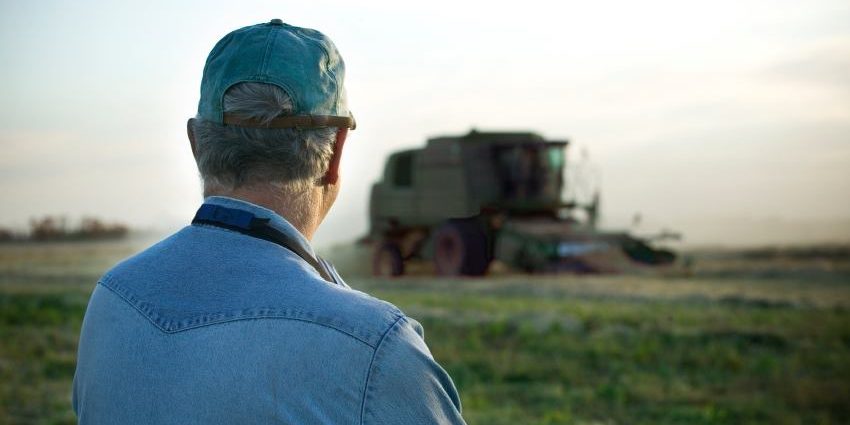As key provisions of the 2018 Farm Bill are set to expire, financial conditions in farm country are spelling out the dire need for a robust Farm Bill with an enhanced farm safety net to support the families who provide us in the U.S. with the safest, most abundant, and most affordable food supply in the world.
A Farm Bill is needed now more than ever, as farmers and ranchers continue to face high and rising input costs and plummeting commodity prices. Agriculture economists have sounded the alarm, with a recent survey showing that more than 50% believe that the ag economy is already in a recession.
But how did we get here? And what does this mean for the Farm Bill? Dr. Nate Kauffman, Senior Vice President and Omaha Branch Executive at the Federal Reserve Bank of Kansas City, recently joined the Groundwork podcast to share his insights on the economic conditions in farm country.
Agriculture is a significant sector of our economy. In fact, the U.S. agriculture sector is responsible for nearly 6 percent of the U.S. Gross Domestic Product (GDP), and many industries depend on agriculture.
“It’s more than just the direct farm output. It’s the other industries that are also reliant on ag, ultimately translating into what we all know as demand for food and fuel,” said Dr. Kauffman.
In his role at the Federal Reserve, Dr. Kauffman keeps a pulse on the data and trends affecting the economy in rural America. But, despite the past few years of relatively strong and stable conditions for the farm economy, Dr. Kauffman believes we are at a turning point.
Dr. Kauffman stated, “What I mean by that is, farm incomes and profits, generally speaking, for the past three years have been extremely strong.”
“This year, we’ve seen obviously a pretty sharp decline in crop prices. Cattle markets and other industries have still been relatively strong, but we’ve started to see some pressure coming by way of [lower crop prices]. So the reason that I describe it as a turning point is because you could potentially see some scenarios a couple of years, two or three years out, if the current environment persists, where some of those challenges could continue to mount,” he added.
As America’s farm and ranch families face steep input costs and plummeting commodity prices, it’s no wonder why farmer sentiment recently reached its lowest level since 2016, according to the monthly Ag Economy Barometer survey by Purdue University and CME Group.
“The Farm Bill, of course, is an important piece of legislation…[I]f this year is a turning point and you’re potentially seeing conditions that are notably weaker in the years ahead, then the source of support that might come by way of the Farm Bill has the potential to matter that much more.”
This sentiment has been echoed by hundreds of farmers, ranchers, commodity groups, and agriculture leaders. And it’s why we don’t just want a Farm Bill – we need a strong Farm Bill with a robust set of smart farm policies that will help foster a strong and growing agricultural economy today, tomorrow, and in the years to come.
To hear more in-depth insights from Dr. Nate Kauffman, check out the full episode of Groundwork here.

